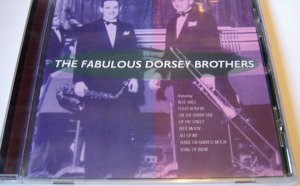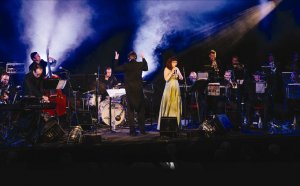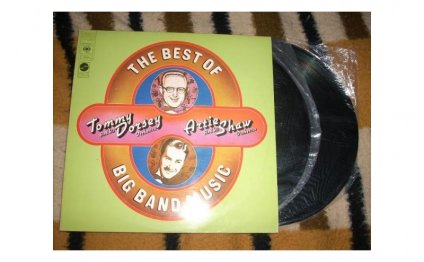
Best of Big Band music
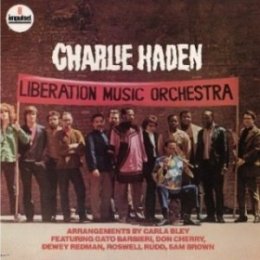 It can be argued that since 1970, the big band has had just as important a role in the development of post-bop modern jazz as any small group subgenre. Some of the more interesting musical minds to emerge over the last 35+ years have come out of the big band world, and yet many still receive comparatively little recognition for their effort. Is this perhaps due to their inclusion in a genre that is sometimes unfortunately labeled as a “has-been?” Is it because it’s financially unfeasible to assemble a big band and keep it afloat, making it easy to brush past the relatively small number of longstanding, high-ranking modern big bands that have actually made it happen?
It can be argued that since 1970, the big band has had just as important a role in the development of post-bop modern jazz as any small group subgenre. Some of the more interesting musical minds to emerge over the last 35+ years have come out of the big band world, and yet many still receive comparatively little recognition for their effort. Is this perhaps due to their inclusion in a genre that is sometimes unfortunately labeled as a “has-been?” Is it because it’s financially unfeasible to assemble a big band and keep it afloat, making it easy to brush past the relatively small number of longstanding, high-ranking modern big bands that have actually made it happen?
This Dozens attempts to display the significance of the post-bop big band since 1970. Some tracks are from artists whose careers began far before 1970, but who were still performing during this time period, influencing generations of younger big band leaders. Other tracks highlight unsung heroes and new faces in the world of the modern big band.
The overriding theme throughout is the timelessness of the subgenre. Unsurprisingly, I could have ended every review by citing Duke Ellington’s influence, which is still amazingly palpable in even the most avant-garde big band performance. On the other hand, Charlie Haden’s Liberation Music Orchestra, the first and earliest track reviewed here, performed at the Blue Note during election week 2008. Charles Mingus and the Thad Jones/Mel Lewis Big Band, the other two early influential artists included here, are commemorated in New York by the weekly residencies of the Mingus Big Band and the Vanguard Jazz Orchestra, respectively. The more things change in the big band world and boy do they ever change the more they stay the same.
Group
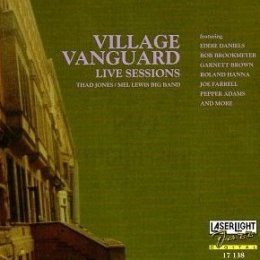 Liberation Music Orchestra
Liberation Music Orchestra
CD
Liberation Music Orchestra (Impulse CD 188)
Buy TrackMusicians:
Charlie Haden (bass), Carla Bley (piano),
Don Cherry (cornet, flute), Michael Mantler (trumpet), Roswell Rudd (trombone), Bob Northern (French horn, percussion), Perry Robinson (clarinet), Dewey Redman (alto, tenor saxes), Gato Barbieri (tenor sax, clarinet), Sam Brown (guitar), Howard Johnson (tuba), Paul Motian, Andrew Cyrille (drums, percussion)
.Composed by Ornette Coleman; arranged by Carla Bley
.Recorded: Judson Hall, New York City, April 27-29, 1969
Rating: 90/100
In 1969, even though Charlie Haden & Co. were clearly staunch opponents of the Vietnam War, the Liberation Music Orchestra took the high road to deliver a sociopolitical message, performing instrumental music largely inspired by the Spanish Civil War. The big band was therefore infinitely more powerful than your average musicians performing their usual fare while playing political preacher between song performances.
On Ornette Coleman's "War Orphans" from the Liberation Music Orchestra's debut recording, Haden and pianist/arranger/co-conductor Carla Bley engage in an extended conversation with delicate, guarded grace. The remaining players creep in as the tune concludes, providing an eerie culmination in which a social and political message has been delivered without a word uttered. Also notice that this big band is not assembled by section as classic big bands were. A big band where you have only one musician to a part, as is the case here, is a significant modern development that leads to some groundbreaking playing throughout this 1969 recording.
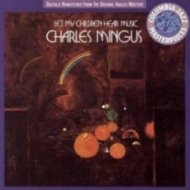 Although the group has only occasionally toured and recorded since 1969, Haden and Bley occasionally bring the band out of retirement whenever the time comes to deliver a musical message. No surprise that they were set to perform at the Blue Note during election week in November 2008.
Although the group has only occasionally toured and recorded since 1969, Haden and Bley occasionally bring the band out of retirement whenever the time comes to deliver a musical message. No surprise that they were set to perform at the Blue Note during election week in November 2008.
Thad Jones / Mel Lewis Big Band
Village Vanguard Live Sessions, Vol. 3 (Delta 17138)
Buy TrackThad Jones (flugelhorn), Mel Lewis (drums), Jerome Richardson (alto sax), Eddie Daniels (tenor sax), Joe Farrell (tenor sax), Pepper Adams (baritone sax),
Snooky Young, Jimmy Nottingham, Richard Williams (trumpets), Garnett Brown, Tom McIntosh, Cliff Heather (trombones), Jerry Dodgion (alto sax), Roland Hanna (piano), Richard Davis (bass)
.Composed by Thad Jones
.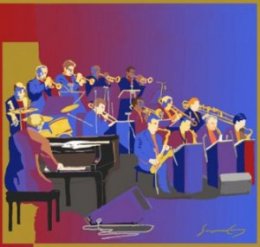 Recorded: New York, November 15-17, 1970
Recorded: New York, November 15-17, 1970
Sure, the Thad Jones/Mel Lewis Big Band occasionally entered the electric/fusion world with funk-groove experiments: check out "Central Park North" for a prime example. But the famed group that performed every Monday night at the Village Vanguard epitomizes the modern big band when they are just plain swinging, too. Their arrangements and featured soloists skillfully combine Swing Era classicism with the energy and freedom of bebop and hard bop. On this track, Jerome Richardson, Eddie Daniels and Joe Farrell take fine solos, and Pepper Adams's rousing baritone sax solo makes clear why he was nicknamed "The Knife." The widespread, sustained influence of this group can still be heard every Monday night when the current Vanguard Jazz Orchestra plays many of the Jones/Lewis arrangements as a memorial to the originators of the straight-ahead, modern New York big band.
Let My Children Hear Music (Columbia-Legacy CK 48910)
Buy TrackLonnie Hillyer, Jimmy Nottingham, Joe Wilder, Snooky Young (trumpets), Jimmy Knepper (trombone), Julius Watkins (French horn), Charles McPherson, Jerry Dodgion, Bobby Jones, Hal McKusick, James Moody (saxes), Jaki Byard, John Foster, Roland Hanna (piano), Charles McCracken (cello), Dannie Richmond (drums)
.Composed by Charles Mingus; conducted by Teo Macero
.Recorded: New York, September 30, 1971
Time and again, exploring the forward-thinking approach of any of jazz's true stylistic innovators ultimately leads further and further back into the music's history. As fundamentally modern and influential as Mingus's intricate rhythmic conception within a gospel/blues framework has been, it simultaneously presents an equally powerful nod to the previous foundation laid by Duke Ellington.
The first half of "Hobo Ho" returns to an earlier Mingus form the single, gospel/blues bass theme that lays the groundwork for a guttural tenor solo and quick, biting background hits. Around the 4-minute mark, though, the arrangement turns into a more complex, through-composed event with multiple interweaving rhythmic figures as the tenor solo gradually melts away into a free-for-all climax. The 1950s and '60s seem to drift into the '70s at that 4-minute mark, displaying the arranged freedom that so many had set out to perfect throughout the '60s. The controlled chaos that has built throughout the tune eventually recedes and leaves the introductory bass theme as the last player standing, taking us both literally and figuratively back to where we started.
Toshiko Akiyoshi / Lew Tabackin Big Band
Tales of a Courtesan (Oirantan) (RCA JP 1 0723)
Buy Track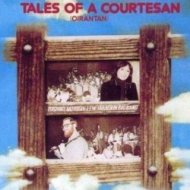
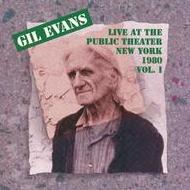
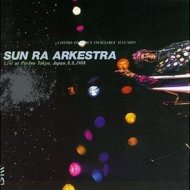
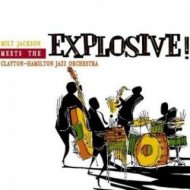
YOU MIGHT ALSO LIKE
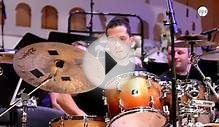
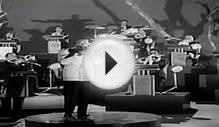

Share this Post
Related posts
Big Band music CD
Use PayPal To Pay For Your Purchases. FREE Signup Big Band Music CD Collection Now you can listen to the famous Big Band…
Read MoreBig Band music Downloads
Get free access to the best Swing & Big Band Music Radio Stations. Now over 60 live streams! Easy to use app with…
Read More
